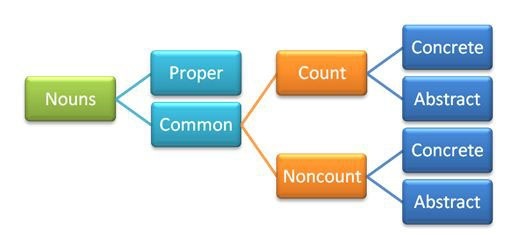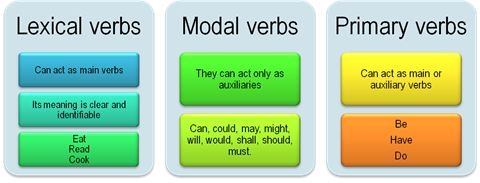Which Word Classes Can The Word “Off” Belong To and Why? [1]
Abstract
Linguistic descriptions of all languages presuppose the division of words into distinct classes or lexical categories (Zyzik and Azevedo, 2009). The discovery of these distinctions - of words being nouns, adjective, verbs, etc. - is a key aspect of learning any given language (Celce-Murcia and Larsen Freeman, 1999); this distinction becomes of paramount importance if one considers too, that one word may in fact undertake more than one form, which causes complications for language learners; hence the importance for better understanding how this phenomenon takes place. The purpose of this essay is to explain and illustrate how one word can belong to different word classes. The first section introduces the concept of word class and the different word classes there are. The following sections illustrate how one word– in this case the word “off” – can in fact take different forms and in doing so have different meanings.
Keywords: word class/ lexical category, word meaning
Resumen
La descripción lingüística de las lenguas presupone la división de las palabras en diferentes clases o categorías léxicas ( Zyzik y Azevedo, 2009). El descubrimiento de estas diferencias de las palabras – cuando son sustantivos, adjetivos, verbos, etc. – es un aspecto clave para el aprendizaje de una lengua (Celce-Murcia y Larsen Freeman, 1999); lo anterior es de mayor importancia si se considera también, que una palabra puede de hecho asumir diferentes formas. Lo anterior conlleva por supuesto complicaciones para los aprendientes de una lengua; de ahí la importancia de poder alcanzar un mejor entendimiento de este fenómeno.
Keywords: palabra clase / categoría léxica, significado de la palabra
Audio
Introduction
The lexical conception of polysemy and the lexical implication rules that derive from it (Ostler and Atkins, 1991) describe how words, in one lexical context, can be used, in a different form, in a related context which results complicated for language learners, hence the importance for better understanding how this phenomenon takes place. The purpose of this essay is to explain and illustrate how one word can belong to different word classes. The first section introduces the concept of word class and the different word classes there are. The following sections illustrate how one word– in this case the word “off” – can in fact take different forms and in doing so have different meanings.
Word Classes
Word Classes or parts of speech- also known as lexical categories- are understood as notions of form, not function (Aarts, 2001). In grammar, a word class is a linguistic category which is generally defined by the syntactic or morphological behavior of the lexical item in question (Crystal, 2003). There are eight word classes (Aarts, 2001; Crystal 2003; Carstairs and McCarthy, 2002), namely noun, determiner, adjective, verb, preposition, adverb, conjunction and interjection.
Of these eight different parts of speech, the word off can describe five forms, these being noun, verb, adverb, adjective, and preposition. The following sections illustrate how this takes place.
The Word “Off” as a noun
Nouns are usually defined as words that denote people, animals, things, or places (Aarts, 2001). However, nouns can also be used to express a range of additional meanings such as concepts, qualities, organizations, communities, sensations and events (Parrot, 2000); also abstract ideas (Crystal, 2003). According to their features, nouns can be classified into proper nouns and common nouns. As Crystal (2003) states, proper nouns are names of specific people, places, times, occasions, events, publications and they differ from common nouns in three main ways:
- Proper nouns can stand alone as a clause element whereas only certain common nouns can.
- Proper nouns do not usually allow a plural, whereas most common nouns do.
- Proper nouns are not usually used with determiners, whereas common nouns are. (p.208)
Besides being classified as proper and common, nouns can be grouped into other five main classes (see Fig. 1 for all six classes). Nouns can then be divided into count and noncount types. And both of these can be further divided into concrete and abstract.

Fig. 1 Nouns and their types
Let us look at the form of the word “off” in the following sentence.
E.g.1. Olympic athletes were set at the off.
Why can it be said that “off” is a noun in this sentence? And what does it mean? Off is found in Example 1 as an abstract, common noun. Its meaning is “the starting point of a race”. Since the starting point of a race is not a tangible object it is an abstract item. As most common nouns, off cannot stand alone as a clause element (Crystal, 2003). What would happen if it were used as a proper noun?
E.g. 2. Olympic athletes were set at off
In this second example, off needs the usage of the determiner “the” to have a full meaning.
The Word “Off” as an adjective
Adjectives are frequently called “describing words” (Parrot, 2000, p. 18) because they in fact provide information about the qualities of something or someone. This something or someone may be a noun, a pronoun, a noun phrase or even a clause (idem) whose details / qualities are provided by, yes, adjectives. Adjectives may not be necessarily identified by their form and this is in close relation to their origin as words (Carter and McCarthy, 2006). For example, adjectives which are related to nouns will have the suffixes –al, -ful, -ic, and –ish, or –less, -ly, -ous, and –y; those related to verbs will have the suffix –able (eg. drinkable) or –ive (attractive). Off is obviously not related to any of the previous word classes regarding its origin. That is, there are adjectives that have that form simply because of their relation to other words within a sentence. Regarding this, in English adjectives tend to appear before the noun they describe and in this case they occupy what is known as the attributive position (Aarts, 2001). For example, in
Eg. 3 The green car is in the garage.
The adjective green appears before the noun car. But what happens in sentences such as
Eg. 4 She is crazy.
In this case, the adjective appears in the predicative position - after the linking verb be- (idem).
E.g. 5 That fruit seems to be off
The word off is providing information about the fruit; it is “describing” the fruit. So what does the word off mean in this case? It means that the fruit is not fresh or good to eat (Cambridge Learners Dictionary, 2001, p. 444). But this word may have other meanings as an adjective. Let us look at Example 6.
E.g.6 He is off today – I think he is ill.
In this case, the word off gives details about a person who, in the example given, is absent from work - “Not at work”- ( Cambridge English Mini Dictionary, p. 219).
From what we have seen, the context does in fact imprint meaning to a word hence the importance of relating not only the form but how and where the form is being used.
So far we have seen off as belonging to two different parts of speech or word classes and belongs boasting very different meanings.
The word “Off” as a preposition
Prepositions are words utilized in the English language vocabulary in order to express spatial or time relationships in a sentence; that is, they express the relation in time between two events or a relation in space between two or more things or people (Carther and McCarthy, 2006). In this form, words that serve this purpose are usually placed before their complement. Let us look at the examples and follow on what meaning off under this particular form.
E.g. 7 When they thought they had arrived, they were actually two miles off the beach.
There is a relation of space indicated by the word off; the relationship in space between “they” and “the beach”. But what meaning does the word carry in this case? What the sample sentence expresses is that this people were away from the seashore – away from a place or position according to Cambridge Learners Dictionary (2001, p. 444)- . The word off denotes a spatial relationship between the people and the shoreline, the word off is also situated before its complement (the beach) as most prepositions do.
The word “Off” as a verb.
A verb is a word that in syntax conveys an action, an occurrence, or a state of being (Crystal, 2003); it is perhaps, according to MacFadyen (n.d.)
the most important part of the sentence. A verb or compound verb asserts something about the subject of the sentence and express actions, events, or states of being. The verb or compound verb is the critical element of the predicate of a sentence
(http://www.writingcentre.uottawa.ca/hypergrammar/verbs.html, n.d.)
In the usual description of English, the basic form, with or without the particle to, is the infinitive. A verb may also agree with the person, gender, and/or number of some of its arguments, such as its subject, or object.
Depending on its features, a verb may be lexical, modal or primary, as seen in Fig. 2

Fig. 2 Types of Verbs (Crystal, 2003)
The question then is if the word “off” can behave in any these ways. We can eliminate the possibilities of “off” being a modal verb or a primary verb since it is not an auxiliary. But, can it be a lexical verb? An analysis of Example 8, may help us to answer the question.
E.g. 8 They offed the girl and dumped her body in the lake.
Lexical verbs also called full verbs (Crystal, 2003), are those with a meaning that can be clearly and independently identified (p. 212) ; that is, they act as the main verb. As for their position in the sentence, verbs usually follow the subject and precede everything else (Parrot, 2000).
In Example 8, we can identify two main verbs, offed and dumped. We can say this because they assert something about the subject – They- indicating what action it is that the subject performs. We may also say that both these words (offed and dumped) can be clearly and independently identified; there is of course the fact that they are being inflected to indicate a past action - another feature of lexical verbs- . Finally, and regarding their position, they appear after the subject of the sentence (They) and precede the rest of the information ( the girl and her body).
Altogether, it can be said that “off” takes the form of a verb in the sample analyzed. As for the meaning of the word, this could be to kill, or to terminate. If the sentence were to be paraphrased it would possibly read as the following
Eg. 9 They killed the girl and dumped her body in the lake
The word “Off” as an Interjection
Interjections are exclusive to spoken language (Carter and McCarthy, 2006), of course unless they are in the form of a written representation of speech as it happens in transcripts or scripts, and may be defined as “expressions of emotion, physical state, agreement… and disagreement” (Aarts, 2001,P. 48). In general, they normally refer to exclamative utterances usually consisting of a single word that cannot be classified as belonging to the main word classes (Carter and McCarthy, 2006). Examples of interjections include a varied list ranging from Ah, erh, hmm…to whoops, yippee, or yuk (Aarts, 2001; Carter and McCarthy, 2006). As for their position in a sentence, Interjections are typically placed at the beginning of a sentence (idem). As for the number of words that make and interjection, they are usually expressed as a single word, but they may also be combinations of words (goodness me or good heavens). A particular feature of interjections is that they are not really part of the sentences where they occur; in Aarts words they are “thrown in” or “inter-jected” (2001,p. 48).
That said, let us look at Example 10 and discuss if the word off could be considered as an interjection.
E.g. 10 Off! Get off my lawn, you buggers!
We must first consider the possible context where this utterance would take place. One could hypothesize that someone’s yard is being trespassed and that the owner of the property is reacting to the invaders. In that sense, the emotion attributed to the word Off and the following exclamation mark could serve in saying that the word is in fact taking the form of an interjection used to express anger, annoyance or irritation - different to the get off construction, where off serves as a particle of the phrasal verb to get off-. However, it could also be said that Off in the first occurrence of the word in the example is the elliptical form of get off. Still, If we assume that an interjection can express either positive or negative emotional reactions to something that has been heard or said, or also to a given situation (Carther and McCarthy, 2006), it could be said that Off is in fact taking the form of an interjection in Eg 10.
Conclusion
The purpose of this essay was to illustrate the ways in which one single word may take different forms and in doing so belong to different word classes depending on the context where it is used. The examples presented and discussed help in understanding the phenomenon of polysemy but also serve as a possible way for helping learners to become aware of this occurrence in the language and prevent miscommunication.
As a learner of English learning about this aspect of the language has been very interesting as I have “followed” the transformation of a single word into five different ones- , from conveying the name of a thing (nouns) to even express a feeling (interjections)-.
Possibly, in some years off will take on other forms and meanings. It’s amazing how words, like humans, tend to change over time, always in search of new lands -or word classes- to conquer.
References
1. Aarts, B., 2001. English Syntax and Argumentation. Hampshire: Palgrave.
2. Cambridge English Mini Dictionary, 2009. Cambridge: Cambridge University Press.
3. Cambridge Learners Dictionary. 2001. Cambridge: Cambridge University Press.
4. Carstairs-McCarthy, A., 2002. An Introduction to English Morphology: Words and Their Structure. Edinburgh: Edinburgh University Press.
5. Carther, R. and McCarth, M., 2006. Cambridge Grammar of English: A comprehensive guide – spoken and written English grammar and usage. Cambridge: Cambridge University Press.
6. Crystal, D., 2003. Cambridge English Language Encyclopedia. 2nd Edition. Cambridge University Press.
7. Ostler, N. and B.T.S. Atkins. 1991. "Predictable Meaning Shift: Some Linguistic Properties of Lexical Implication Rules". Proceedings of the First SIGLEX Workshop on Lexical Semantics and Knowledge Representation, Springer-Verlag.
8. Parrot, M., 2000. Grammar for English Language Teachers. Cambridge: Cambridge University Press.
[b] Estudiante de la licenciatura en Enseñanza de la Lengua Inglesa / Student at the BA in English Language Teaching. <<
[1] Este ensayo fue elaborado como parte de las evidencias de la asignatura de Morfosintaxis del 5º. semestre de la licenciatura en Enseñanza de la Lengua Inglesa bajo la supervisión de la Mtra. Rosa María Funderburk Razo / This essay was written as part of the requirements for the subject of Morphology and Syntax. <<
